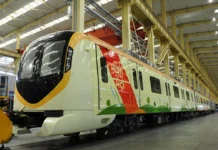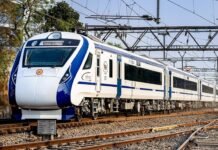In a major boost to urban mobility, CEG Test House and Research Centre Pvt. Ltd. emerged as the lowest bidder for carrying out geotechnical soil investigation for 139km of new metro lines in India.
The geotechnical study will take place for the following 6 metro corridors:
| Route | Length |
| Mumbai Metro MRTS Lines | 30 km |
| Indore – Ujjain | 46 km |
| Tughlakabad – Noida Sector 142 | 15 km |
| Kundli – Sonipat metro line | 20 km |
| Samaypur Badli – Kundli | 15 km |
| New Delhi Railway Station – New Ashok Nagar | 13 km |
The insights from the geotechnical investigation will be used for preparing the Detailed Projects Report (DPRs) of these corridors.
The bidding process for the geotechnical investigation of these corridors began in December 2024 by DMRC. As per the DMRC, the scope of work includes “Geo-Technical Investigation Works for Preparation of Detailed Project Reports (DPRs) for MRTS Projects”.
The opening of the technical bids took place in January 2025, during which one of the four bidders was disqualified due to non-compliance with the contract’s guidelines. Following this process, financial bids of the remaining three bidders were revealed by DMRC in June 2025.
| Firm | Financial Bid (in crores) |
| CEG Test House And Research Centre Pvt. Ltd. | 1.09 |
| Cengrs Geotechnica Pvt Ltd. | 1.12 |
| Techpro Engineers Pvt Ltd. | 1.24 |
Geotechnical Activities to be Performed
- Drilling boreholes with a diameter of 150 mm in various soil types to a depth of up to 30 meters.
- Performing Standard Penetration Tests (SPT) at 1.5-meter intervals within the boreholes, following the relevant IS Code of Practice, along with other in-situ tests as specified in the schedule.
- Extracting undisturbed soil samples at every change in strata, with a minimum of two samples per borehole, in compliance with IS standards.
- Measuring and documenting the groundwater table level upon completion of boring.
- Executing borehole drilling up to specified depths, including a maximum of 5 meters in intact hard rock (RQD >50%), 10 meters in weathered rock (RQD up to 50%), or 30 meters in soil (up to N=100), using a hydraulic or calyx rig by the wash boring method, as per the Engineer-in-Charge’s directions and the technical specifications.
- Conducting in-situ permeability tests in rocky formations and laboratory permeability tests for other soil types.
- Extracting rock core samples from boreholes and recording Rock Quality Designation (RQD).
- Performing all required laboratory tests on collected samples, following the prescribed schedule and technical specifications.
- Surveying borehole locations, determining elevation levels, and accurately plotting them on the alignment plan.








